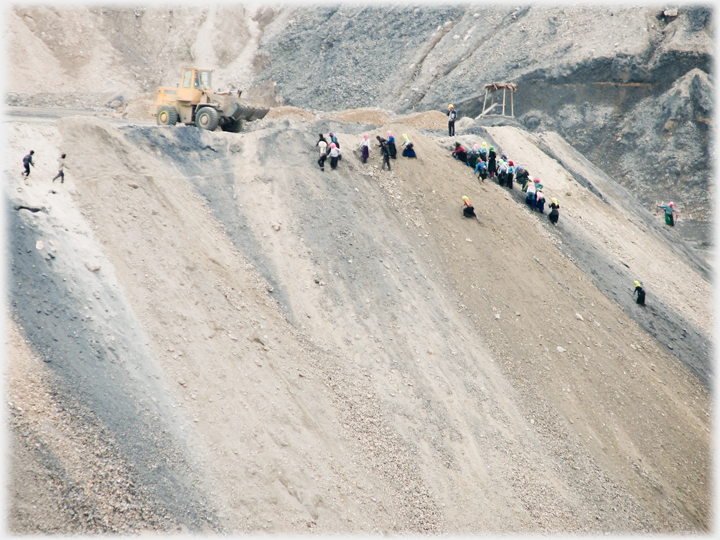
Metabolic Rift
The more the [capitalist system] unlocks the powers of productivity, the more it must unleash the powers of destruction; and the more it extends the volume of production, the more it must bury everything under mountains of suffocating waste.
Istvan Mészáros (1972)

[Marx’s] concept of ‘metabolic rift’...can be applied to contemporary ecological issues such as global warming, soil erosion, aquaculture, the livestock business and the disruption of the nitrogen cycle.
Kohei Saito (2022)

How has humanity got itself into this pickle? What is it that leads us into climate change, and the associated problems we now face? Mészáros and Saito find in Marx’s writings part of an explanation. Marx used metabolism (all the chemical process in cells or organisms) as an
analogy
 Are inter- and intra- social processes both being held to be analogous to chemical ones?
for the interdependent processes between human societies and nature. The rift comes when this interdependence breaks down irreparably. Marx thought of the urban-rural
divide
Are inter- and intra- social processes both being held to be analogous to chemical ones?
for the interdependent processes between human societies and nature. The rift comes when this interdependence breaks down irreparably. Marx thought of the urban-rural
divide

The divide is, of course, far from new.
as providing evidence of this division; a divide magnified by the
commodification

A process which could be seen as a symptom of the rift.
of nature. Eco-friendly Marxist writers suggest that the rift cannot be avoided in capitalist systems for, in the long run, only by the growth of economies can profits be maintained, but on a finite planet there are ‘limits to growth’. And already,
on the way
 Now the damage we are doing is clear for all to see. But it was seen already 50 years ago.
to bringing Armageddon upon ourselves, we are destroying nature - our home and foundation. So why do we become alienated from our
roots,
Now the damage we are doing is clear for all to see. But it was seen already 50 years ago.
to bringing Armageddon upon ourselves, we are destroying nature - our home and foundation. So why do we become alienated from our
roots,

A concrete example of being rooted into a community.
what is it that drives us into the arms of
capital?

Here Gandhi makes a pertinent suggestion.
Saito quotes Mészáros from the latter’s article which appeared in English in 2014 on pages 49/50 of the New York Socialist Magazine Monthly Review. That quote is on page 17 of Saito’s book Marx in the Anthropocene published by Cambridge University Press. Saito’s quote is from page 4 of the same book.
The photograph is of an open cast coal tip in the far north of Hà Giang Province, northern Vietnam.
Above, hovering on blue introduces a link: click to go, move away to stay.

Saturday 20th July 2024
 ...guide to this site
...guide to this site